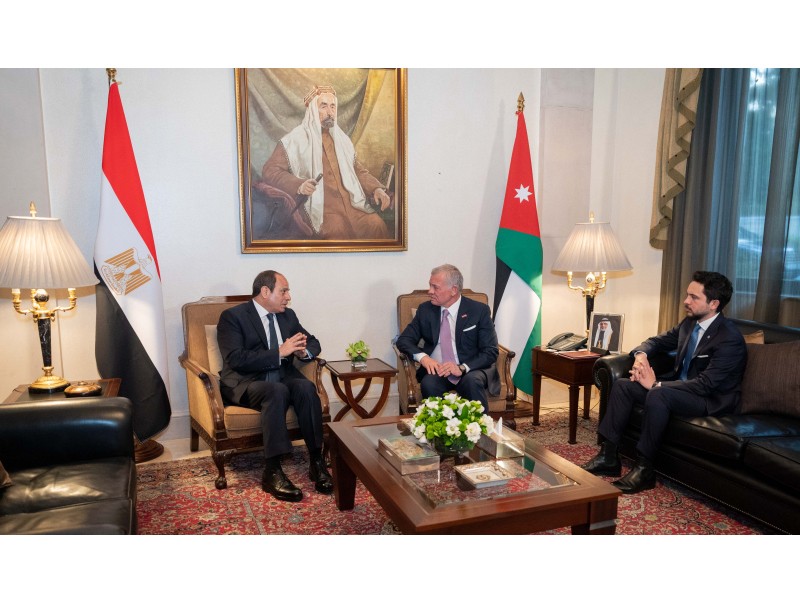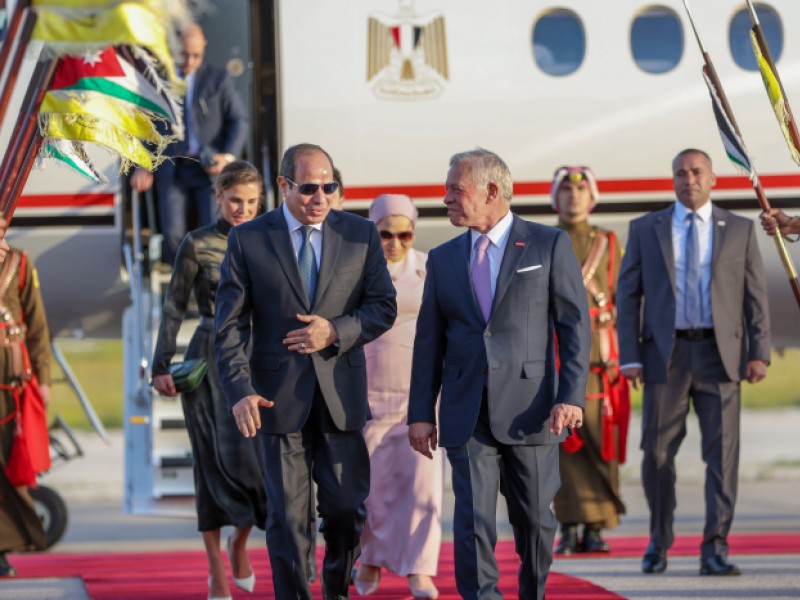Queen Rania Participates in Panel, Launch of UN Chief's Global Education Initiative

(Office of Her Majesty, Press Department- New York) – Her Majesty Queen Rania Al Abdullah took part in a panel discussion following the launch of the UN Secretary General Ban Ki-moon’s new global education initiative, Wednesday, at the United Nations Headquarter in New York. The Secretary General has secured over US$1.5 billion in commitments for the new initiative, Education First, which aims to make education a top global priority and boost progress towards the Millennium Development Goal on education.
The panel discussion was chaired and moderated by UN Deputy Secretary-General Jan Eliasson and former UK Prime Minister and U.N. Secretary-General’s Special Envoy for Global Education, Gordon Brown.
In addition to Her Majesty, panelists included Nobel laureate, pro-democracy leader and Member of Parliament, Daw Aung Sang Suu Kyi of Myanmar; teacher representative, Teopista Birungi Mayanja of Uganda and youth representative Charles Young of Jamaica.
The discussion focused on the goals of the new initiative and the critical need to put education on top of the global agenda.
“Getting every child into school is really an audacious endeavor of a global scale and I think we need the efforts and the priorities to match that endeavor.” Her Majesty told the panel, “I think it would be fair to say that everybody in this room knows that education is more than just classrooms and textbooks, it’s more than just learning to read and write, it’s about prosperity, opportunity and health… it is about stability.”
“It’s not just social justice, because when a girl goes to school she finds the courage to take control of her life and make decisions, whether it’s marriage or childbirth, it’s about economic justice, because when a child gets an education, then he has the tools to lift himself out of poverty. It is about political justice, because when the voiceless find their voice inside the classroom, then they can stand up and be heard outside the school gates.” said the Queen.
Her Majesty also stressed the importance of political will, collaborative efforts and taking advantage of new opportunities to get every child into school. “Education, intrinsically we know it’s a human right, yet we continue to treat it as a privilege. We need the political will at all levels to put the priorities in place and sometimes that has been missing. We need to work collaboratively because we know that in order to reach that objective you can’t work in isolation; it’s not just about governments doing it alone, and today we have a new eco-system of partners that can work together, whether it is governments, NGOs, philanthropists, businesses, we have new tools that we can use, new funding mechanisms, whether it’s things like debt conversion, development bonds or diaspora bonds.” Her Majesty told the panel.
U.N. Secretary-General’s Special Envoy for Global Education, Gordon brown thanked Her Majesty Queen Rania “for her continuing work in education” and added: "I have been travelling the world, and when you meet young children who are begging to go to school, desperate for a chance for education and parents who will give up everything so that their children will have that chance, then we know that what we have to do is urgent, and it's essential and every country must be part of that.”
“I am encouraged and grateful for all the generous commitments made today, which gives Education First a boost towards achieving its goals,” said Secretary-General BAN Ki-moon in a UN statement. “Our shared goals are simple. We want children to attend primary school and to progress toward higher education that will help them to succeed in life.”
Education First seeks to make a breakthrough to mobilize all partners –both traditional and new – to achieve universal primary education ahead of the 2015 target date for the MDGs. An additional $24 billion is needed annually to cover the shortfall for children out of primary and lower secondary school.
The initiative was launched on the margins of the 67th Session of the UN General Assembly. Participants included Heads of State and Ministers from countries, the Secretary-General’s Special Envoy for Global Education, Gordon Brown, heads of UN agencies, young people, civil society representatives and Chief Executive Officers of major corporations.
In the next five years, Education First will focus on three priorities: putting every child in school, improving the quality of learning and fostering global citizenship.
“We must not deny the promise of quality education to any child. The stakes are too high. When we put education first, we can end wasted potential – and foresee stronger and better societies for all,” Secretary-General BAN said.
At the end of the 1990s, 108 million children of primary school age were not enrolled in schools. That number has fallen to 61 million today, according to UNESCO’s forthcoming Global Monitoring Report. The gap between boy and girl enrolment has also been greatly reduced. These are significant achievements, largely due to national and international resolve to act on shared goals for education.
Featured
Queen Rania's official website
This website does not support old browsers. To view this website, Please upgrade your browser to IE 9 or greater
Your browser is out of date. It has known security flaws and may not display all features of this and other websites. Learn how to update your browser



